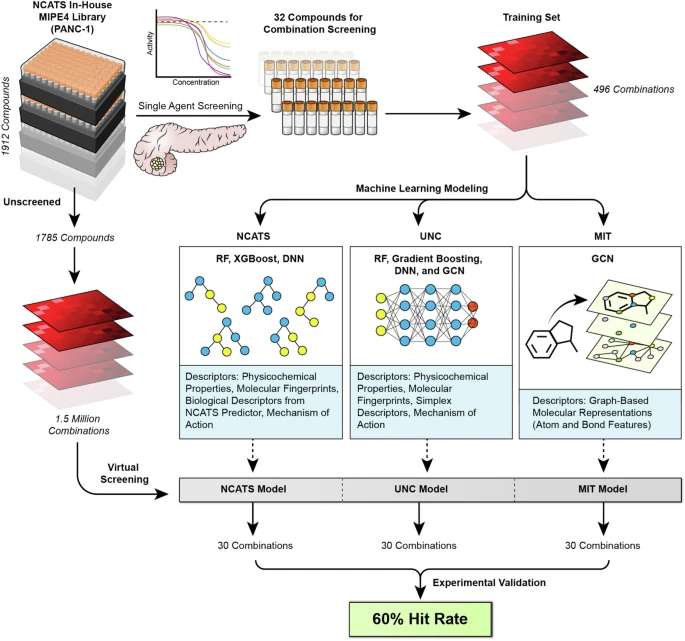Pancreatic cancer: AI identifies promising combinations

Pancreatic cancer is known for its deadly silence: it grows hidden, resists most treatments, and is usually discovered too late. But a new international study published in Nature Communications offers hope by using artificial intelligence to identify drug combinations that work better together than alone.
Scientists from three centers of excellence in the United States used algorithms to analyze millions of possible drug pairings. Their goal: to find those that act synergistically—that is, combining their effects to inhibit the growth of cancer cells more effectively. The strategy worked. In laboratory tests, 307 promising combinations were validated, with the potential to change the course of treatment.
More data, less trial and error
The team began by analyzing a set of 32 already-known compounds, all with some degree of activity against tumor cells. From there, they tested 496 combinations in the lab and used the results to train machine learning models.
Based on this data, the algorithms began predicting the effects of more than 1.6 million virtual drug combinations. Three independent research groups, each using different approaches, selected the top 30 candidates. When tested back in the lab, 51 of these pairs demonstrated synergistic action. The most effective model achieved an 83% accuracy rate in its predictions.

Combining drugs is not a new idea, but knowing which pairs work efficiently together is a challenge that grows exponentially with the number of available options. Artificial intelligence solves this problem with speed and precision, saving time, resources, and lives.
Among the findings, researchers identified recurring patterns of action in the most effective combinations. This suggests that certain biological mechanisms, when targeted together, produce a more potent effect against the tumor—something that would be difficult to discover through manual testing alone.
Next Steps
Although the current results are based on lab experiments with cells, the study paves the way for more advanced trials, such as tests on 3D tissues, organoids, and eventually, clinical studies in humans.
What’s most promising is that the compounds analyzed are already known—and in many cases, approved for use in other diseases. This speeds up—and reduces the cost of—the path to the patient.
A New Direction in the Fight Against Cancer
The study not only shows that artificial intelligence can predict effective drug combinations—it proves that it works in practice. And it does so with an impressive level of accuracy, especially when dealing with one of the most difficult cancers to treat.
If future tests confirm the results, medicine may gain a powerful new weapon: the intelligent use of existing drugs, strategically combined to overcome pancreatic cancer’s resistance—a battle that, until now, seemed lost.






